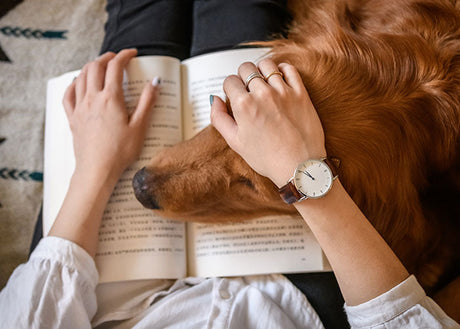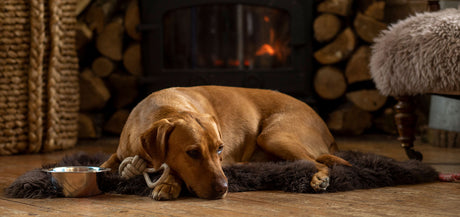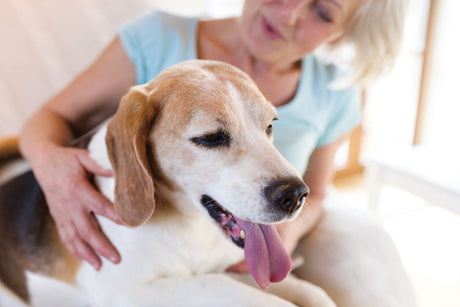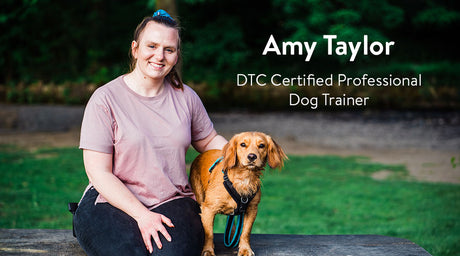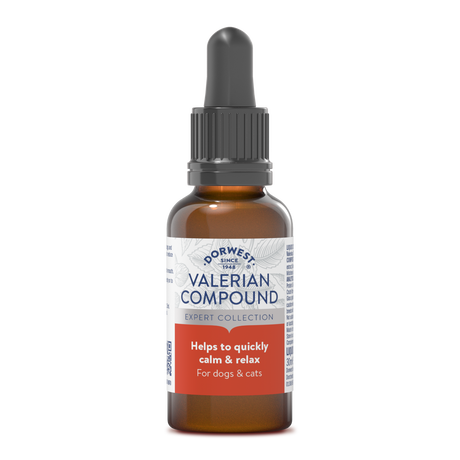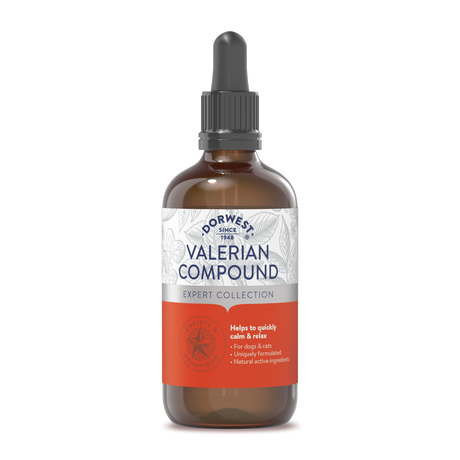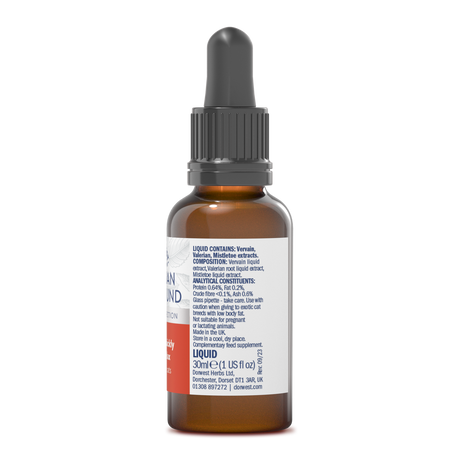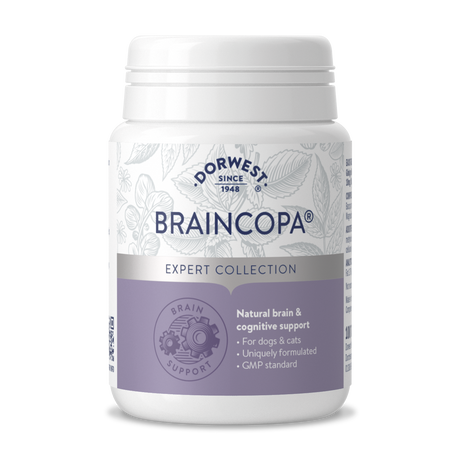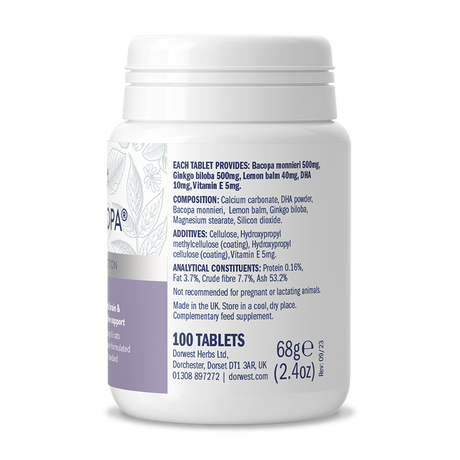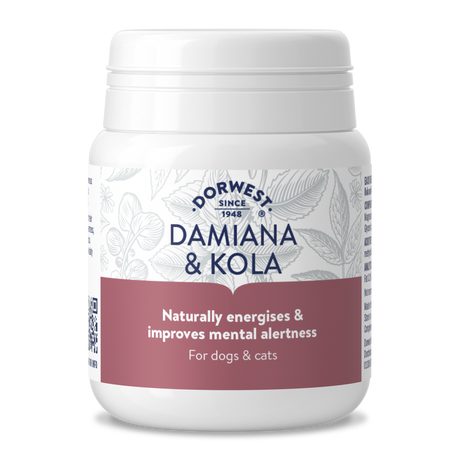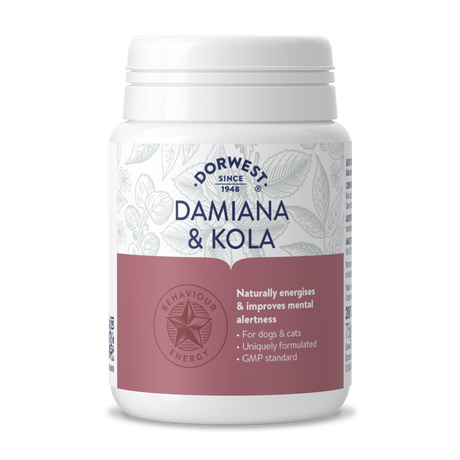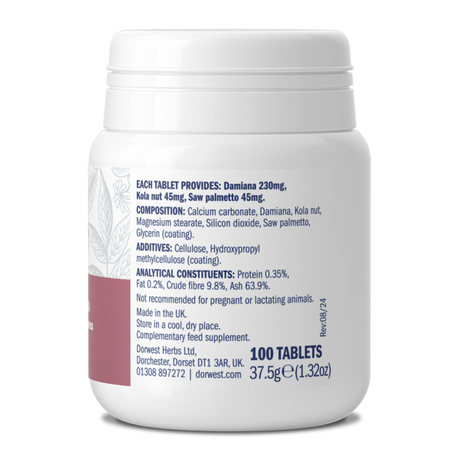Dog anxiety is real and more common than many pet owners realise. Whether your dog trembles at loud noises, whines and cries when you leave the house, or seems nervous for no clear reason, it’s important to know that there are ways to help. This guide will help you spot the signs, understand the causes, and discover ways to calm an anxious dog, instantly and long-term.
Understanding dog anxiety
Just like humans, dogs can experience anxiety in various forms and intensities. Anxiety in dogs is an emotional response to perceived threats or stress, and it can affect dogs of all ages, breeds, and temperaments.
Types of dog anxiety
- Separation anxiety – Fear of being left alone
- Noise anxiety – Fear of loud sounds like fireworks or thunderstorms
- Social anxiety – Fear of unfamiliar people, pets, or environments
- Situational anxiety – Triggered by car journeys, vet visits, or specific changes
- Age-related anxiety – Cognitive decline in older dogs can lead to confusion and stress
By recognising that anxiety is a natural canine response, you can take the first step towards supporting your dog.
Signs of stress in dogs: How to know if your dog is anxious
Recognising the early signs of anxiety can make a huge difference. Many dogs don’t "act out" they communicate their stress through subtle body language and behaviour changes.
Physical and behavioural signs
- Panting (when not hot) / salivating or yawning
- Pacing or constant movement
- Hiding, cowering or avoidance
- Aggression (growling, snapping)
- Excessive barking or whining
- Restlessness or inability to settle
- Shaking or trembling
- Becoming unusually withdrawn or hyper attached
These are often early indicators of distress. If you notice one or more of these dog anxiety symptoms regularly, it’s worth investigating further.
Can dogs have panic attacks?
Yes, dogs can experience sudden, overwhelming panic, often triggered by loud noises, being left alone, or changes in routine.
What causes anxiety in dogs?
Wondering, “why is my dog so nervous?” or “why is my dog acting weird and scared all of a sudden?” You’re not alone. Anxiety can be triggered by many things, some obvious, others more complex.
Common causes
- Fear-based triggers – e.g., fireworks, thunderstorms, vacuum cleaners
- Separation anxiety – often begins in puppyhood and can worsen without support
- Aging & cognitive decline – confusion, disorientation, and sensory loss in senior dogs
- Sudden environmental changes – trauma, illness, or household disruptions can lead to a dog suddenly becoming anxious
- Nighttime anxiety – some dogs become anxious when it gets dark due to fear or disorientation
Anxiety in puppies
Puppies are especially prone to anxiety as they adjust to new surroundings. Signs of puppy anxiety can include whining, restlessness, and destructive behaviour, especially when left alone.
Separation anxiety in dogs

Separation anxiety is one of the most common forms of anxiety in dogs and often the most misunderstood. It’s more than just boredom, many dogs experience real distress when left alone.
What can trigger separation anxiety?
- Changes in schedule or routine
- Rehoming or moving house
- Loss of a companion (human or animal)
- Lack of early socialisation or independence training
Signs your dog may be struggling
- Destructive behaviour (chewing, digging)
- Excessive barking or howling
- Urination or defecation indoors
- Escape attempts
How to help a dog with separation anxiety
- Practice short departures and build up gradually
- Use calming supplements during specific events, such as trips in the car
- Create a consistent routine
- Leave a piece of clothing with your scent in your dog's bed
- Reach out to a certified dog behaviourist for professional advice
Read more: How to help separation anxiety in dogs →
Firework anxiety in dogs
Fireworks can be terrifying for dogs, sudden loud bangs and flashing lights can trigger intense fear.
Why are dogs scared of fireworks?
Many dogs are scared of fireworks because their highly sensitive hearing and instinctive survival responses make sudden loud noises and bright flashes feel threatening. The unpredictable bangs and lights can overwhelm their senses, triggering a natural fight-or-flight reaction. It’s this deep-rooted response to perceived danger that makes fireworks season so stressful for many dogs.
Signs of firework anxiety
- Shaking and panting
- Trying to hide or escape
- Destructive behaviour
- Barking or whining
- Loss of appetite
How to prepare your dog for firework season
- Use calming supplements, like our Scullcap & Valerian Tablets in advance of Bonfire Night. You can also add Valerian Compound to their dinner as a fast-acting top up when the bangs increase into the evening.
- Create a den or safe retreat space
- Muffle outside noise with music or white noise
- Stay home and comfort them
Find out more about our calming products →
How to calm an anxious dog instantly
When your dog is panicking, quick action can help provide immediate comfort.
Quick calming tips
- Speak in a calm, reassuring voice
- Stay with them, offering strokes and comfort
- Create a safe retreat with their bed or crate
- Play soothing music or use a white noise machine
- Try calming essential oil diffusers
- Use fast-acting natural supplements like Valerian Compound →
Natural calming remedies for dogs
Natural supplements can be a great first step in supporting anxiety.
Herbal ingredients that can help
- Valerian – offers natural calm without sedation
- Chamomile – known for its soothing properties
- Scullcap – often used to help manage general anxiety
Are natural remedies safe?
Yes, when manufactured and used correctly, many can also be recommended by your vet. We always recommend choosing high-quality supplements formulated for pets, like our Scullcap & Valerian Tablets →
Dog anxiety medications: What you need to know
In severe cases, medication may be recommended alongside behavioural training. These can be acquired from your local vets, after a consultation.
When to consider medication
- Your dog’s anxiety is affecting their quality of life
- Your vet recommends it for situational use (e.g., fireworks)
Common prescriptions
- Fluoxetine (Prozac)
- Clomipramine (Anafranil)
- Gabapentin for situational anxiety
Calming tablets and supplements
Our range of calming supplemts such as Scullcap & Valerian Tablets and Valerian Compound can be used alone or alongside prescriptions for daily or short-term support.
Long-term anxiety management & training
Anxious dogs often benefit most from a combined approach: calming supplements and behavioural training.
Counterconditioning
This term refers to the task of teaching your dog to associate scary things with something positive (e.g., treats or toys).
Creating a calm environment
- Avoid chaotic changes
- Offer structure and routine
- Use relaxing routines before triggering events
Work with a professional
A qualified behaviourist or trainer can create a bespoke plan and guide you through consistent desensitisation training. This is great as they teach you how you can reinforce this everyday, when a trigger occurs.
Preventing anxiety in dogs
Prevention is often easier than trying to help once started, especially in puppies.
Top tips for prevention
- Early socialisation – gradual and safe exposure to people, places, sounds
- Consistent routine – dogs thrive on predictability
- Daily exercise & mental stimulation – reduces built-up stress
- Look for early signals – and act before anxiety worsens
- Use of calming products during stressful periods (e.g., fireworks, travel)
If you have any questions or need any help choosing which product is best for your pet - feel free to reach out and contact us our expert and friendly team on 01308 897272 or email info@dorwest.com


